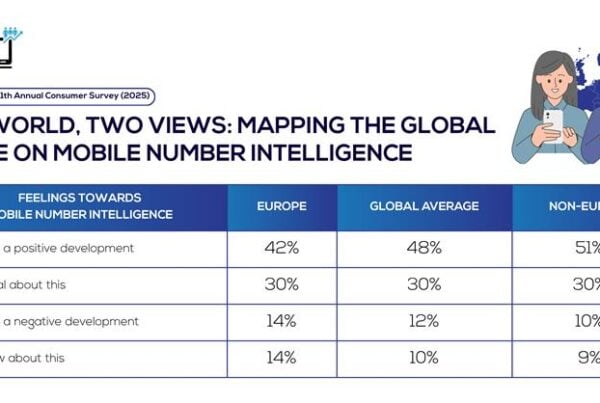MEF’s Riccardo Amati explores Bandwidth’s Q2 performance, where subdued investor sentiment masks a transformative AI voice strategy. CEO David Morken positions voice as an indispensable AI-era channel, with the Maestro platform multiplying revenue per call. Elevated R&D investment, disciplined cost management, and robust cash flow underpin its strategic foothold in a high-growth AI voice market poised for long-term value creation.
Wall Street’s caution overshadows strong earnings as Bandwidth’s AI-driven voice platform transforms its revenue model. CEO David Morken says AI voice technology is becoming a critical layer in the communications ecosystem.
Bandwidth’s stock plunged nearly 20% immediately after its Q2 earnings release, recovering modestly afterward. The key culprit? Revenue guidance that came in just below Wall Street’s expectations, sparking concern despite the company beating quarterly revenue and earnings per share estimates. Investors appear cautious, weighing near-term headwinds against the company’s longer-term prospects, which hinge on the integration of AI voice technology.
AI Voice: The Revenue Game-Changer
CEO David Morken summed up the opportunity clearly on the earnings call: “Voice is the most durable and important channel for customer engagement. And with the rise of AI, it will be even more indispensable.” This isn’t just a feel-good statement—it reflects a shift in how Bandwidth generates revenue. The company’s AI voice integration, notably through its Maestro platform, is transforming the model. AI-powered voice calls can generate three to four times the revenue of standard calls, making this a potent lever for future growth.
Despite Q2’s modest 3.7% year-over-year revenue increase to $180 million, the AI voice opportunity signals a potential acceleration. Bandwidth’s cloud communications segment, which contributed $136 million, grew 8% YoY and serves as the primary growth engine. The integration of AI features—such as voice cloning, translation, and dynamic call routing—is not a marginal add-on but a core strategic pivot that promises to drive enterprise adoption and revenue expansion.
AI-powered voice calls can generate three to four times the revenue of standard calls, making this a potent lever for future growth.“
Furthermore, the CEO’s acknowledgment that “there has not been much conversation about infrastructure and software layers important for voice AI infrastructure” highlights Bandwidth’s underappreciated position in the AI ecosystem. While many focus on data center compute for AI, Bandwidth’s platform is a critical backbone for voice AI applications—positioning the company uniquely for growth as voice AI adoption scales.
From a profitability standpoint, Q2 adjusted EBITDA of $22 million beat expectations, showing operating leverage potential. GAAP margins remain constrained due to high stock-based compensation expenses (~$50 million annually). Still, as Bandwidth scales AI-driven services, margin expansion appears achievable, supported by the company’s robust free cash flow generation ($25.6 million in Q2) and improving operating margins (up from -3.5% to -2.1%).
Another CEO insight underscored this potential: “Once the importance of infrastructure and software layers for voice AI is recognized, I think valuations may change.” This signals management’s confidence that market perception will eventually catch up with Bandwidth’s AI-driven value proposition.
Strategic Moves Powering Future Growth
Bandwidth’s strategy is clear: invest in AI innovation while optimizing costs elsewhere. The company trimmed sales and marketing expenses year-over-year by reducing headcount but increased R&D spend by nearly 13% to fuel AI platform enhancements. This balance demonstrates Bandwidth’s focus on sustainable growth, betting heavily on AI-driven products to lift revenue and margins.
The recent collaboration and the broader industry context reinforce this strategy. Bandwidth’s customer NICE’s acquisition of Cognigy—an AI conversational platform—reflects the growing demand for integrated AI voice solutions. Such partnerships validate Bandwidth’s platform as an essential infrastructure provider for AI voice services.
Moreover, Bandwidth’s efficient customer acquisition, with a Customer Acquisition Cost (CAC) payback period of just 13.1 months and a strong net retention rate of 112%, indicates that the company’s AI-powered offerings resonate with customers and drive recurring revenue. These metrics suggest Bandwidth can sustainably scale its enterprise base without exorbitant marketing costs.
The company’s full-year revenue guidance of around $752 million, projecting 10% growth, may seem conservative to some analysts given the AI tailwinds. Still, this cautious stance reflects macroeconomic uncertainties and competitive pressures in the AI voice space.
Now, the financials in brief: Bandwidth posted Q2 revenue of $180 million, beating expectations by 0.6%, with adjusted earning per share (EPS) of $0.38, 14% ahead of estimates. Adjusted EBITDA came in at $22 million, surpassing guidance and reflecting 12.2% margins, improved from prior quarters. Free cash flow hit $25.6 million, a strong operational cash generation signal. Operating margin improved to -2.1%, up from -3.5% last year, while the company reduced net debt to $187 million, showing financial discipline.
Despite these solid figures, the market reaction was muted, reflecting skepticism about near-term growth after the modest revenue guidance miss. However, given the long-term AI voice market’s estimated 30% Compound Annual Growth Rate (CAGR) through 2033, Bandwidth’s positioning in this space could unlock significant value.
Mobile Ecosystem Lessons: Voice AI Impact
Bandwidth’s AI voice innovations don’t just influence its own financial outlook—they have broader implications for the entire mobile ecosystem. Mobile operators, app developers, and service providers increasingly demand advanced voice capabilities like real-time translation, voice cloning, and AI-powered virtual agents to enhance user experience and differentiate their offerings.
As a communications platform-as-a-service (CPaaS) provider, Bandwidth plays a critical role as an enabler for these mobile ecosystem transformations. Its global network infrastructure, integrated with AI voice services, supports scalable, seamless voice experiences that mobile players can leverage to open new revenue streams and innovate customer engagement.
The rise of AI voice services also pushes the mobile ecosystem to rethink infrastructure investments, data management, and regulatory compliance frameworks. Bandwidth’s leadership in voice AI infrastructure sets a precedent for how communication platforms will evolve to support increasingly intelligent, context-aware voice applications across global mobile networks.
CEO David Morken’s insight captures this opportunity: “Voice is the most durable and important channel for customer engagement. And with the rise of AI, it will be even more indispensable.”
Bandwidth is a member of the Mobile Ecosystem Forum (MEF).
MEF Podcasts
For more discussion, interviews and insights subscribe to our three regular podcast channels
Listen Now…









